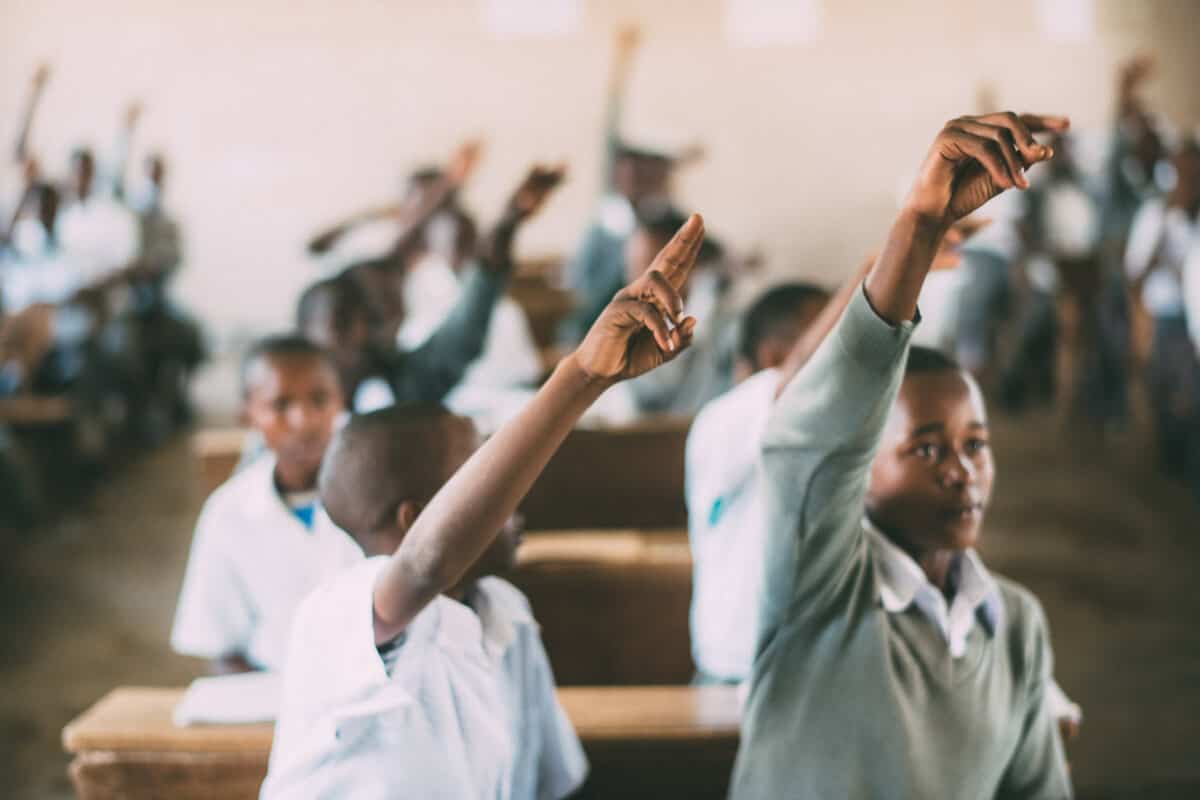 September 28, 2018
September 28, 2018
“The conclusion is clear: to continue improving the human condition, our task now is to help create opportunities in Africa’s fastest-growing, poorest countries.”
The Bill & Melinda Gates Foundation released the Gatekeepers Data Report this week, their annual checkpoint for reaching the Global Goals. The report informed that focus must be on investing in youth in Sub-Saharan Africa in the coming decades.
Africa as a whole is projected to nearly double in size by 2050. Currently, about 60% of Africa is under the age of 25 (35% of North America is under 25), and by 2050 there will be 1 billion youth in Africa. The youth population boom can be seen as a threat or as an opportunity.

We have had many successes in engaging youth individually throughout TFFT’s 12 years, and the world has seen success on a continental scale as well. China and India were faced with similar population growth predictions. However, through proactive policy reform and development investments, huge progress was made across the region that not only prevented the predicted famine, but doubled crop yields and has led to nations, like Vietnam, outscoring nations of much higher GDP in international exams.
The development successes in Asia means that by 2050, 86% of extremely poor people (less than $1.90 a day) are projected to live in Sub-Saharan Africa. Therefore, the Gates have recommended bulk investment over the next three decades be made in Sub-Saharan Africa. Dramatic population growth without significant investment could stall progress that has been made on poverty and disease over the past decades.
The poorest parts of the world are growing fastest, requiring the engagement of growing youth population under limited resources, whether through attendance in secondary school, university, vocational training, or employment. Without engagement, in addition to having a significantly lower income, if any income at all, they will start families sooner, lack knowledge on disease prevention, and engage in illegal activities. Unengaged youth create a huge loss of innovation and prosperity that each young person can create for their nation.

However, when youth are engaged, the impact is exponential! When girls graduate from secondary school:
“Educated girls tend to work more, earn more, expand their horizons, marry and start having children later, have fewer children, and invest more in each child. Their children, in turn, tend to follow similar patterns, so the effect of graduating one girl sustains itself for generations.”
Generational change is created from enrollment in secondary education. What happens if their teachers are well trained and engaged? Let’s take a minute to remember how just one extraordinary teacher can radically transform your worldview – what would a school-full create?
The Gates celebrated that since 2000, the number of African children enrolled in primary school has increased from 60 to 150 million, and the number of girls in school is now virtually equal to the number of boys. In less than 20 years, enrollment in primary school has more than doubled!
Now the next hurdle becomes improving the quality of education being received by the 150 million and counting youth in Africa. Because true advancement comes not from bodies in a classroom, but from every student leaving primary school armed with basic skills.

The Gates stressed that investment in young people is investing in human capital – their health and education. Investing in youth’s health and education has proven to be the surest way for a country to unlock the opportunity of a youth population boom. The surest way to increase productivity and innovation. Projections show that human capital investments can increase the size of the sub-Saharan Africa economy by nearly 90% by 2050.
TFFT is setting an excellent example for the investment required to give youth the opportunities needed to change the trajectory of the continent and unlock decades of innovation and prosperity.
By investing in each scholar’s human capital, TFFT provides health insurance, psychosocial care, and enrollment at an English-medium boarding school. On top of the necessities laid out by the Gates Foundation, TFFT goes steps further by providing basic needs, tutoring, career guidance, peer mentoring, lifeskills training, and trainings for their parents and guardians.
On top of the investment in individual human capital, TFFT has developed a rigorous teacher training program. By training teachers on new teaching methods and creating a culture of collaboration and innovation, TFFT strives to increase the quality of education our scholars—and youth across Tanzania—receive.
I found myself very empowered by the closing sentiment from the Gates –
It may be difficult to imagine millions of young people in the world’s most impoverished countries climbing rapidly up the ladder… but the weakness is our imagination, not the young people.
Let us not let our imagination be another obstacle preventing African youth from generating prosperity.
